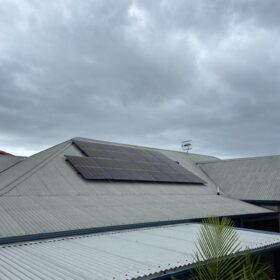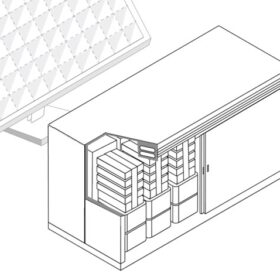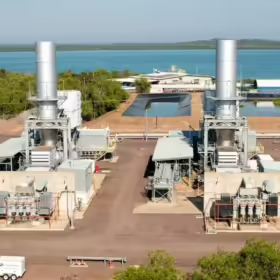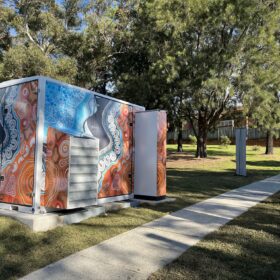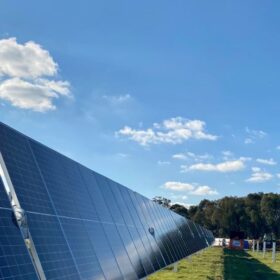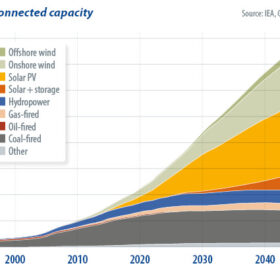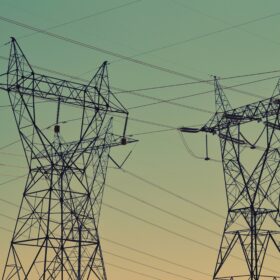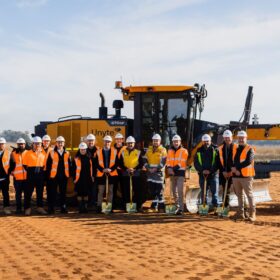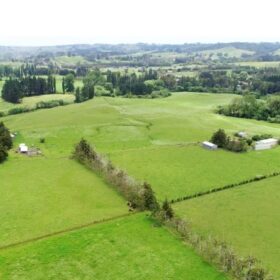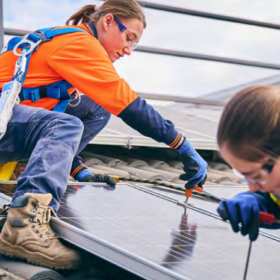Volumes ‘going backwards’ as rooftop market drops off
The roll out of rooftop solar in Australia has slowed with a total of 248 MW of new capacity registered across the country in June, a 14% decline on the previous month and the lowest tally since January.
Redflow teams with Stanwell to advance zinc bromide flow battery
Australian flow battery specialist Redflow has struck a partnership with Queensland state-owned generation company Stanwell to work together on the development of a non-lithium long-duration battery energy storage solution for use in a 400 MWh project.
NT begins synchronous condenser conversion to support solar
The Northern Territory government has detailed plans to convert one of the gas-fired turbines at the Channel Island power station to operate as a synchronous condenser as a new report reveals the Territory’s electricity system is in a “prime but precarious” position.
Feds provide backing for more than 420 community batteries to share rooftop solar
The Australian government has beefed up its commitment to community batteries to support the integration of renewable energy in the grid with more than 420 battery energy storage systems to be installed in neighbourhoods across the country as part of its Community Batteries for Household Solar program.
Maryvale solar and storage project lands support in NSW tender round
The Maryvale solar and battery hybrid project being developed in central western New South Wales in one of two renewables projects with a combined generation capacity of 312 MW that have secured long-term energy service agreements through the state government’s latest tender round.
China could lead the world to net zero
China, with an 18% share of the global population, uses 26% of the world’s primary energy and emits 33% of the world’s energy-related CO2. The energy transition unfolding in the country isn’t merely a national affair as its ramifications echo globally, explains Mahnaz Hadizadeh, a researcher for consultancy DNV.
AEMC tweaks grid connection rules to relieve project backlog
The Australian Energy Market Commission has published a final rule to speed up grid connections for new renewable energy generation and storage in light of the pace and scale of projects being built to achieve the national target of 82% of renewables by 2030.
ACLE begins building first in 270 MWh battery project pipeline
Australian EPC contractor ACLE Services has broken ground on a 5 MW / 10 MWh battery energy storage project in northern Victoria that is the first in a planned pipeline of 27 batteries that will be rolled out across regional Australia delivering a combined capacity of 270 MWh.
Singapore fund eyes Australia after acquiring NZ solar developer
Singapore-based renewable energy fund manager SC Oscar has snapped up New Zealand solar project developer Rānui Generation as part of its strategy to build a portfolio of renewable energy assets in both New Zealand and Australia.
AEMO reinforces role of rooftop solar in energy transition
The Australian Energy Market Operator’s latest Integrated System Plan has stamped the role rooftop solar will play in the nation’s energy transition, revealing that the total capacity of rooftop PV and other distributed solar in the nation’s main grid is forecast to rise from 21 GW to 86 GW by 2050.
